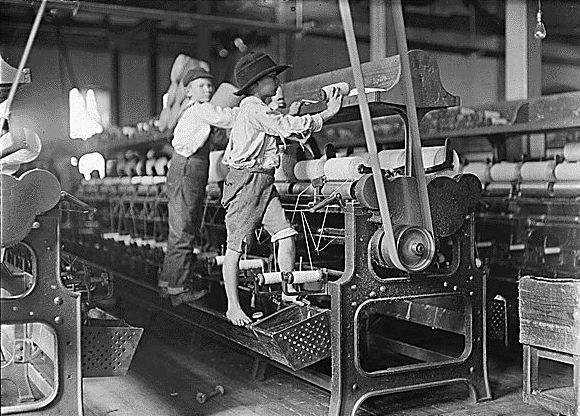- Jul 2, 2010
- 3,573
- 2,915
- Country
- United States
- Faith
- Christian
- Marital Status
- Married
Friends,
I spotted a thread on the "American Politics" forum that asked the question:
"Liberals, why do you believe people are entitled to the work of others?"
Since this was asked in a politics forum, the responses mostly were focused on politics or economics. But I think that the moral and ethical dimension of this question needs to be discussed. Here is the body of the OP (my highlighting):
But please examine what this person is saying, especially the parts I bolded. I would agree that it is immoral to take money from the rich to give to the poor, but it is also immoral to take from the poor (and even from the middle class) and give it to the rich.
Also, if "no one is entitled to the fruits and labor of another", what about all those who have gained wealth and property off the backs of the poor, slaves, indentured servants, immigrant laborers, those stripped of their homesteads and farmlands, etc.?
To start it off the discussion, here is a quote from Pope Francis, in Evangelii Gaudium:
So what attitude and response is right and just here?
I spotted a thread on the "American Politics" forum that asked the question:
"Liberals, why do you believe people are entitled to the work of others?"
Since this was asked in a politics forum, the responses mostly were focused on politics or economics. But I think that the moral and ethical dimension of this question needs to be discussed. Here is the body of the OP (my highlighting):
If the OP was Catholic and not Protestant, I would have responded that he is missing the clear teaching of the Catholic Church. Even then, I think he is forgetting a few things a guy named Jesus said about it.Why do you think the less successful are entitled to things from the more successful?
Compassion is great, I am all for the rich giving to the poor, but there is no morality in taking money from the rich and giving it to the poor.
No one is entitled to the fruits and labor of another. If that were the case, society would cease to progress.
What am I missing?
But please examine what this person is saying, especially the parts I bolded. I would agree that it is immoral to take money from the rich to give to the poor, but it is also immoral to take from the poor (and even from the middle class) and give it to the rich.
Also, if "no one is entitled to the fruits and labor of another", what about all those who have gained wealth and property off the backs of the poor, slaves, indentured servants, immigrant laborers, those stripped of their homesteads and farmlands, etc.?
To start it off the discussion, here is a quote from Pope Francis, in Evangelii Gaudium:
And a little more:Today everything comes under the laws of competition and the survival of the fittest, where the powerful feed upon the powerless. As a consequence, masses of people find themselves excluded and marginalized. (Par. 53)
The thirst for power and possessions knows no limits...This system...tends to devour everything which stands in the way of increased profits...Behind this attitude lurks a rejection of ethics and a rejection of God.(Par. 56, 57)
So what attitude and response is right and just here?

